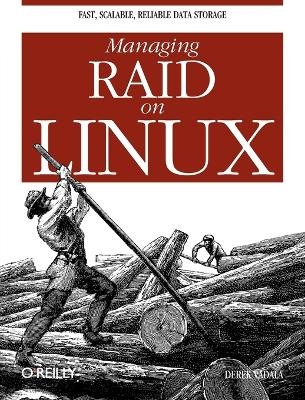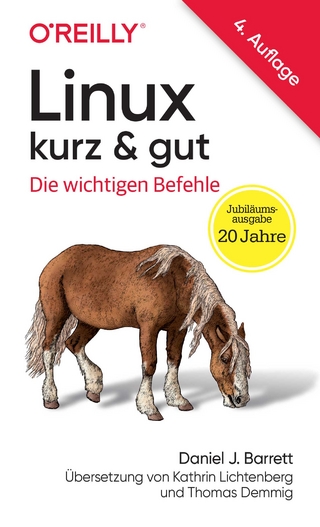
Managing RAID on Linux
O'Reilly Media (Verlag)
978-1-56592-730-8 (ISBN)
Redundant Array of Independent Disks (RAID) technology is becoming a standard feature of computer systems that support mission-critical services like file sharing, mail exchange, or Web servers. RAID offers two benefits to these essential systems: improved I/O performance and fail-safe data storage. Although bandwidth problems on networks are well documented, the internal data transfer bottleneck that exists at the hardware level in each system can also leave you with perplexing performance issues. RAID is a cost-effective and easy-to-manage way to alleviate this bandwidth problem by distributing the I/O load seamlessly across multiple disks and controllers. RAID also provides uninterrupted data access through disk mirroring and parity algorithms. That means systems can remain online even during a disk or controller failure. RAID is scalable, making it robust enough for large, high-traffic sites and small, critical systems. By using RAID, system administrators can combine single disks into terabytes worth of data storage. Managing RAID on Linux covers everything system administrators need to know to put together a system that can support RAID.
You will learn about the different types of RAID, along with associated technologies and issues, and how to choose the best RAID system for your needs. With a step-by-step, hands-on approach, the author guides you through the installation of either Linux software RAID or a hardware RAID card. The book shows how to build an array and optionally install a high-performance file system. Contents include: An introduction to RAID and Linux Planning and architecture of your RAID system Building a software RAID Software RAID tools and references Building a hardware RAID Performance and tuning of your RAID system RAID has become the low-cost solution of choice to deal with the ever-increasing demand for data storage space. Written for system administrators, power users, tech managers, and anyone who wants to learn about RAID technology, Managing RAID on Linux sidesteps the often-confusing vendor-specific approach you'll find elsewhere to give you the straight story on RAID. Even non-Linux users will find this book full of valuable material.
Derek Vadala lives in New York City. He works for azurance.com, an open source and security consulting firm that he co-founded. He has been published in SysAdmin Magazine, Linux Journal, The Perl Journal, and The Journal of Linux Technology.
Preface 1. Introduction RAID Terminology The RAID Levels: An Overview RAID on Linux Hardware Versus Software 2. Planning and Architecture Hardware or Software? The RAID Levels: In Depth RAID Case Studies: What Should I Choose? Disk Failures Hardware Considerations Making Sense of It All 3. Getting Started: Building a Software RAID Kernel Configuration Working with Software RAID Creating an Array The Next Step 4. Software RAID Reference Kernel Options md Block Special Files /proc and Software RAID raidtools mdadm 5. Hardware RAID Choosing a RAID Controller Preparing Controllers and Disks General Configuration Issues Mylex Adaptec Promise Technology 3ware Escalade ATA RAID Controller LSI Logic (MegaRAID) 6. Filesystems Basic Filesystem Concepts The Linux Virtual Filesystem (VFS) ext2 ext3 Extensions for the ext2 Filesystem ReiserFS IBM JFS SGI XFS 7. Performance, Tuning, and Maintenance Monitoring RAID Devices Managing Disk Failures Configuring Hard Disk Parameters Performance Testing Booting with Software RAID A. Additional Resources B. Hardware RAID Controller Vendors Index
| Erscheint lt. Verlag | 21.1.2003 |
|---|---|
| Reihe/Serie | O'Reilly Ser. |
| Verlagsort | Sebastopol |
| Sprache | englisch |
| Einbandart | kartoniert |
| Themenwelt | Informatik ► Betriebssysteme / Server ► Unix / Linux |
| ISBN-10 | 1-56592-730-3 / 1565927303 |
| ISBN-13 | 978-1-56592-730-8 / 9781565927308 |
| Zustand | Neuware |
| Informationen gemäß Produktsicherheitsverordnung (GPSR) | |
| Haben Sie eine Frage zum Produkt? |
aus dem Bereich


